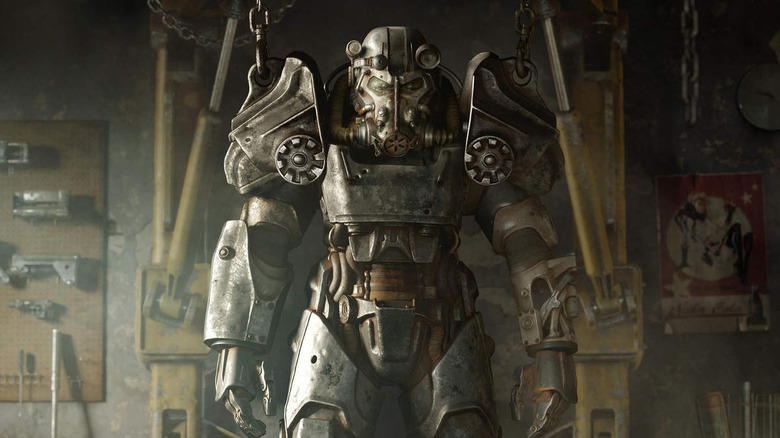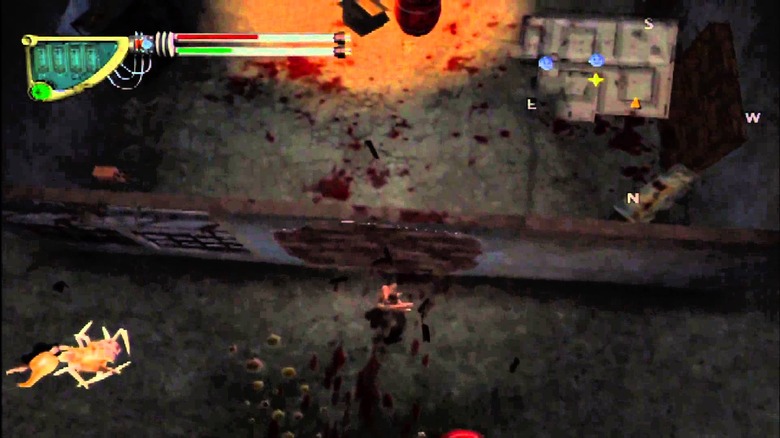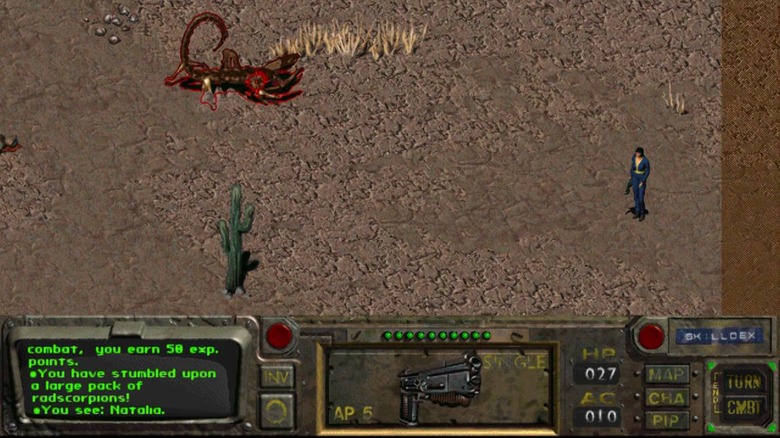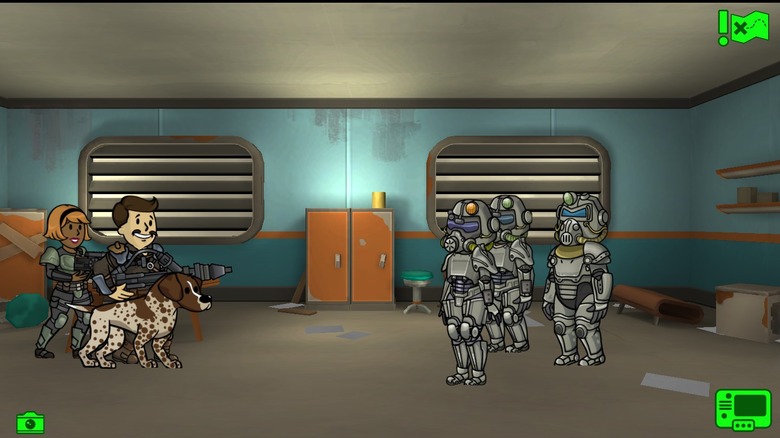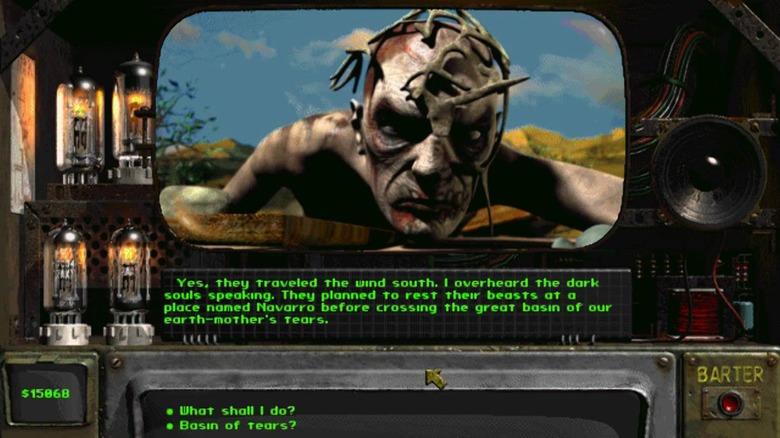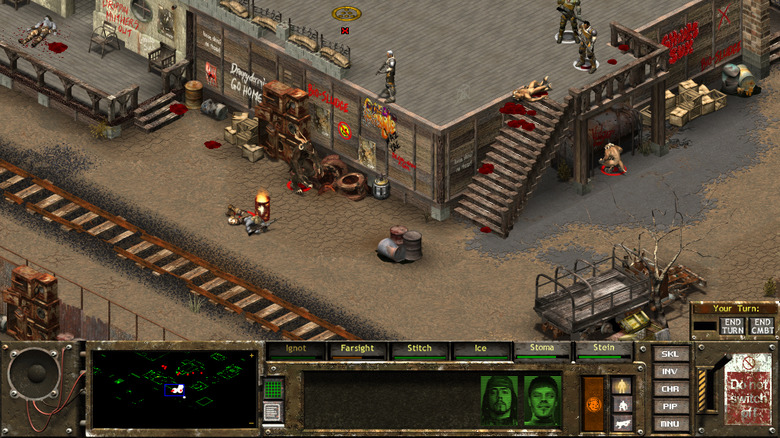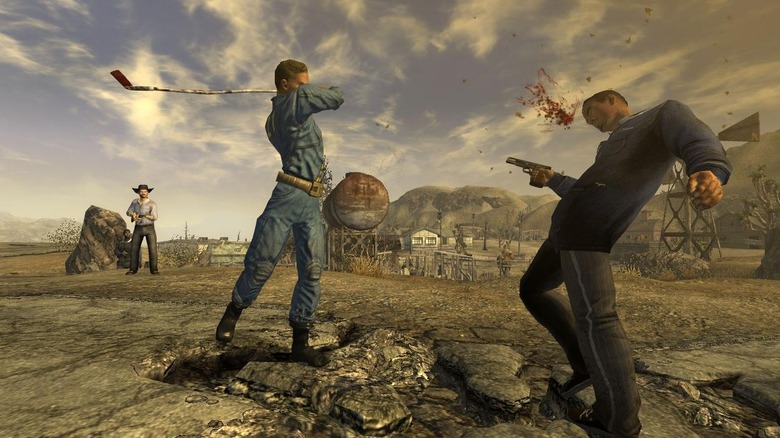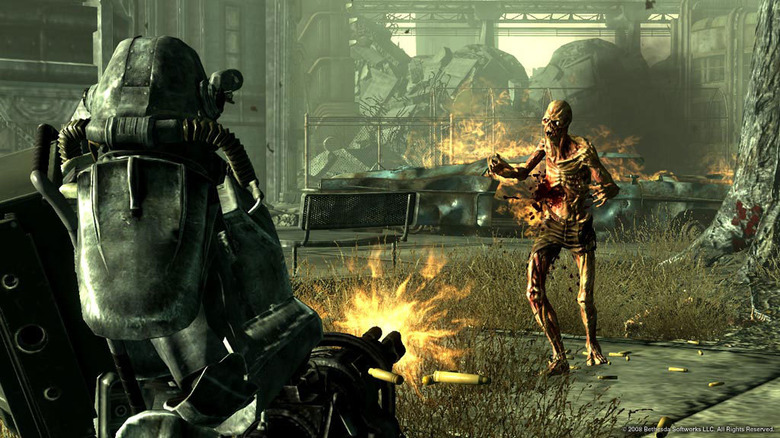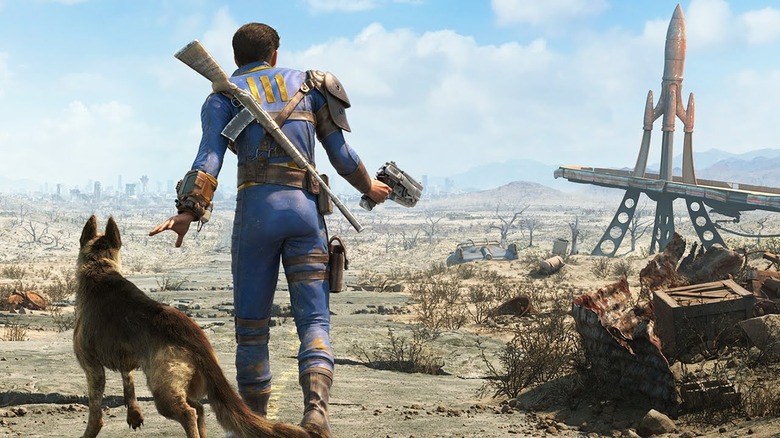Every Fallout Game Ranked
The Fallout franchise is synonymous with greatness. There are very few people familiar with the video game business that haven't at least kept their eye on Fallout games, and the series' influence can be felt across the industry.
There's certainly a clear formula for Fallout: at the very least, it involves a post-apocalyptic setting, a grizzled band of survivors, and some very satisfying RPG mechanics. Despite this, however, some games have withstood the test of time and high expectations better than others. It's a testament to the quality of the Fallout series that its entire roster of games, save one notable dud, are all in contention for being the best the franchise has to offer.
Of course, everyone's got an opinion on which game's the best, and we're no different. Here's our purely subjective take on every single Fallout game, ranked in order of worst to best.
Fallout: Brotherhood of Steel
There's a lot of debate about which game reigns supreme at the top of the Fallout mountain, but there's very little argument for which title remains stuck at the bottom. Fallout: Brotherhood of Steel has its share of passionate fans, but they are few and far between.
It's not just that Fallout: Brotherhood of Steel didn't catch on with critics and the general public, though. The game also fundamentally changed what a Fallout title was supposed to feature, trading in an open-world narrative filled with choice and adventure for a linear plot that, while not dull, never threatened to become fascinating.
That risk would be forgivable too, if only Brotherhood of Steel featured a redeemable combat system. The top-down action-RPG only featured six playable characters and a co-op mode, and there were no player parties to be had; outside of the co-op, the player would simply choose one person and play as them until deciding to switch. Characters were barely customizable, with the SPECIAL system returning only as an automated feature. Finally, skills were all passive, mostly existing just to buff whatever attacks the character already had.
Also, don't get us started on the ending, which was about as unsatisfying as it gets, especially considering the pedigree of the series before and since.
Fallout
After Fallout: Brotherhood of Steel, there's really no going wrong with a given Fallout game in the series. The one that started it all — unless you count Wasteland, which the original Fallout was considered a spiritual successor to — laid the groundwork for many of the staples fans find in the series today.
The SPECIAL system got its start here, a seven category attribute system that has since become synonymous with the franchise. Fallout also featured the companion system that made later entries in the series so compelling. While the size and scale of the companions' impacts on the protagonist have grown as the games have, there's still a wide variety of options available to the player in the very first Fallout.
Fallout also introduces the Super Mutants and Deathclaws, two of the most iconic races in RPGs, and the Brotherhood of Steel, a faction that has since become a staple of the series as it grapples with the ideas of technology and progress in a world that those concepts laid waste to once already.
Perhaps the reason Fallout finds itself so low in these rankings is because it's the one game in the series that feels like it lacks the trademark charm we've come to expect from an adventure involving Vault Dwellers. Whereas later titles really lean into black humor, Fallout is a tad more serious, with a little less post-apocalyptic whimsy to buoy players through the grimness of the wasteland.
Fallout Shelter
Fallout Shelter is way, way better than people expected it would be. When the game was unveiled during E3 2015, fans weren't quite sure what to think — a bigger problem than usual, since the game launched on iOS the same day.
Fallout Shelter, at its heart, is a micromanagement title similar to The Sims. Players are tasked with running their own vault and must face all the challenges that come with it, which includes deciding whether or not wanderers are worthy of entering, making sure the population is happy, and advancing the research and functionality of the Vault as time progresses.
There's two things that stand out about Fallout Shelter that make it an extremely memorable mobile game: first, the graphics are gorgeous, done entirely in the style of the Pip-Boy art aesthetic. Second, the game is a worthy time-killer, capable of play sessions from anywhere between five and fifty minutes. Very few mobile titles are so adept at striking a balance like that, and Fallout Shelter was the series' first (and so far only) attempt at making mobile gaming work in the Fallout universe.
Fallout Shelter might not have the brains of some of its other family members, but it's got all of the heart that characterizes a good Fallout title, and it's a worthy inheritor of the name.
Fallout 2
First of all, Fallout 2 is great; we're just in the part of the rankings that will now only involve games that are actively fantastic or better. That's the legacy of the Fallout series, and if a remastered Fallout 2 were created, there's a chance it could seriously contend for the best game ever released in the franchise.
What makes Fallout 2 so great is the subtle refinements it made to an already successful formula. The thing that will always stand out to us about Fallout 2 is the way the series embraced humor and pop culture as a selling point, helping to relieve some of the doom and gloom that a post-apocalyptic setting inevitably provides.
Fallout 2 also features a storyline that is unforgettable, culminating in a stand-off with the President of the United States. While that title holds a lot less weight when the United States is mostly irradiated desert, it doesn't change anything about the climatic feel of the narrative's final story beats.
Fallout 2 made adjustments to combat and meaningful decisions, but it's the tone of the game that makes it memorable, especially because it has such historical importance. The only thing that really holds Fallout 2 back nowadays is its interface, which can be generously described as convoluted and hideous. Luckily, the HUD's poor reception made sure that no future Fallout game would repeat Fallout 2's mistakes.
Fallout Tactics: Brotherhood of Steel
Also known as the good entry into the series that has Brotherhood of Steel attached to its title, Fallout Tactics: Brotherhood of Steel was a masterpiece in tactical gameplay that still doesn't get enough credit.
Part of that is because Fallout Tactics makes even more radical changes than the later Fallout: Brotherhood of Steel. There's less emphasis on non-player characters having significant roles in the narrative, and players are allowed to recruit people into their Brotherhood of Steel party, meaning that there are a lot of changing parts and less opportunities available to become irrationally attached to a Super Mutant you've lovingly dubbed Bork.
The trade-off is worth it, though, for some of the most sublime tactical combat this side of XCOM or Final Fantasy Tactics. The game features three different modes of combat that each offered some appealing innovations at the time, and Fallout Tactics has a big enough learning curve that it felt very satisfying to master its intricacies.
In fact, nearly all of the criticisms leveraged at Fallout Tactics amounted to complaints about its linearity and shift away from role-playing, which are certainly valid. Still, it's worth wondering what kind of reception a game as beautifully crafted as Fallout Tactics: Brotherhood of Steel would get with a modern sequel.
Fallout: New Vegas
Fallout: New Vegas is a bit of a strange one. Bethesda actually contracted a different developer, Obsidian Entertainment, to create New Vegas. Obsidian actually featured a number of former developers of Black Isle Studios, the developer that created the original Fallout. The development of Fallout: New Vegas was also done under an intensely short schedule, making its quality all the more impressive.
While Fallout: New Vegas is built in the same style as Fallout 3, it differs in some key approaches. New Vegas added depth to the perks system and changed the third-person view to be more over-the-shoulder, but it's major contribution was making skills matter again. Fallout: New Vegas had a wild number of conversational options that took cues from whatever the player had chosen for their character build; situations could be solved with either a high skill in engineering or in survival, for instance, and they'd both be accomplished in ways that were congruent with the skill in question.
New Vegas also features arguably the strongest main narrative that the series has ever experienced. The twists and turns of the Courier's story start with the protagonist getting shot in the head and doesn't slow down from there, and the game also features one of the most satisfying revenge plots in all of gaming. When the Courier finally catches the traitorous Benny, it just feels right.
Fallout 3
The third installment in the franchise's main line will always hold a special place in the hearts of Fallout fans. Fallout 3 marks a new beginning for the series, as it's the first Fallout game developed by Bethesda after the company acquired the rights to the IP from Interplay Entertainment. It's also the first main Fallout game to use 3D graphics and real-time combat, marking a leap forward into the future for the series.
It's hard to overstate just how good Fallout 3 was. Character creation was integrated into the game's tutorial seamlessly, innovating how we look at basic elements like RPG character customization. The VATS system was introduced, adding depth to the series' combat and tactical decisions.
Fallout 3 also continues the West Coast story that began in Fallout and Fallout 2 despite taking place in the D.C. area. The plot features callbacks to past villains, the inclusion of the always welcome Super Mutants, and an ending that is influenced by a multitude of decisions made over the narrative, giving the game a lot of replayability.
Above all, Fallout 3 will be remembered for resurrecting a series that felt like it had fallen apart prematurely. If that isn't a good enough reason for the game to feature so high in our rankings, then we guess you could also consider the fact that it was a runaway Game of the Year candidate and spawned the Tunnel Snakes meme, two equally impressive accomplishments.
Fallout 4
For the Fallout series, the latest really is the greatest. Fallout 4 has the weight of the world on its shoulders in terms of expectations, and somehow it managed to reach the high bar Bethesda had set for the series anyways.
The Commonwealth area allowed for some fresh storytelling, especially since Fallout 4 actually begins on the day the bombs are dropped. Sure, there's a timeskip after that, but just a brief glimpse into what life was like before the apocalypse happened was breathtaking. Starting the game that way? Instantly memorable.
Beyond the nice narrative touches present within the early game, Fallout 4 just takes everything about the other modern Fallout games and improves on them. Combat in Fallout 4 is a blast, with the world design lending itself particularly well to a bit of strategy wherever possible. There are a lot of choices to make in Fallout 4, and even more companions to make those choices with. Standouts like Nick Valentine and Curie won over the hearts of fans while also offering some of the best sub-plots Fallout has ever had.
Naturally, the game wasn't perfect. Dialogue choices were trimmed down and the graphics felt like they were lagging behind all the other advancements Bethesda had made. Those minor quibbles don't change the fact that Fallout 4 is the deepest, biggest, and most exciting Fallout game ever made, topping the rankings by a margin thinner than the differences between a human and a well-made synth.

